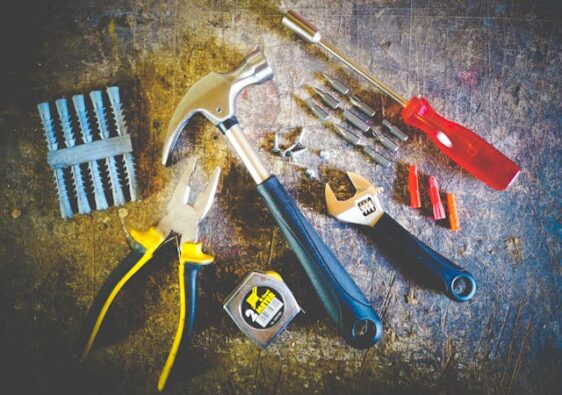Making plans in the event of emergency isn’t easy to do. It can be hard to think ‘what if?’. But being prepared can make all the difference, especially when you’re running a household.
By anticipating potential emergencies and taking proactive steps, you can ease any potential risks and make sure you and your family are safe. Here are some key home emergencies to be prepared for.
Fire
House fires remain a leading cause of death and property loss across the country. There are some steps you can take to protect your home, however.
- Install smoke detectors on every floor and regularly test them
- Create a fire escape plan and ensure that all family members are familiar with it
- Have fire extinguishers strategically placed in easily accessible locations
Additionally, it is essential to practise fire safety by being cautious with candles, electrical appliances, and cooking equipment.
Flooding
In England, approximately 1 in 6 properties are at risk of flooding from rivers, sea, and surface water, with many others susceptible to various sources of flooding.
One way to make sure you prepare for flooding is to stay informed about the flood risk in your area and take precautions if you need to. If you do live in an area that could be at risk, consider installing flood barriers or sandbags to protect vulnerable entry points.
Also, keep important documents, valuables, and sentimental items stored in waterproof containers or at higher levels. Consider taking out flood insurance to protect your property and belongings.
Gas leaks
Gas is a valuable energy source, but it can be dangerous if used improperly. The Health and Safety Executive (HSE) reports a significant rise in the number of gas explosions and fires linked to inflammable gas.
To minimise the risk of gas leaks, have your gas appliances regularly serviced by a registered engineer. You might be advised to replace your boiler, or it could be that pipework needs attention. This might be a costly, but vital, expense. If you have savings set aside, you could use these to cover the cost of any work that needs doing.
Additionally, install carbon monoxide detectors near sleeping areas and ensure proper ventilation. If you suspect a gas leak, immediately turn off the gas supply, get everyone out of your home, and contact the gas emergency helpline.
Medical emergencies
Medical emergencies can happen at any time, and it is crucial to have a well-stocked first aid kit at home. Include items such as bandages, antiseptics, pain relievers, and emergency contact information. Also:
- Educate yourself and family members on basic first aid techniques and CPR
- Keep important medical records readily available
- Have emergency numbers saved in your phone and posted in a visible location
While emergencies can be unexpected and challenging, being prepared can help minimise their impact.
Alongside these specific emergencies, it is important to maintain a strong financial position to handle unforeseen expenses. Ensure your finances are in order and consider improving your credit score to have access to emergency funds if needed.
Remember, prevention is key. Regular maintenance, safety checks, and awareness can go a long way in reducing the likelihood and severity of home emergencies. Stay prepared, stay informed, and prioritise the safety and wellbeing of your household.



